Roman Catholicism: Beliefs and Practices
Roman Catholicism is a religion that’s ancient, yet it’s still the most prominent religion in the world. It’s one of the three Abrahamic religion alongside Jewish and Islam in which they all share a common root, namely Abraham. It’s a very important religion which encompasses every corner in the world with the most dominant population as compared to the other massive faiths such as the Jews or Islam. The belief is having its roots embedded in the world. It has overcome many obstacles and problems. However, it’s still standing as proud as ever.
Background
The religion began with Jesus Christ and his teachings which are around 4 BC to 30 CE, and through His death, the belief solidified and propagated all throughout the world through his disciples and most especially, Saint Peter. It was he who first ministered in Rome around first century CE when Jesus himself appointed Peter as the head of the Church.
Anyone caught practicing the said religion would be persecuted by everyone since the paganism was still rampant and the state religion of Rome around the early years. As they say, “When in Rome, do what the Romans do.” And it was only on the year 313 that the believers of Jesus Christ had a breathing room when the Emperor Constantinople I legislated the practice of Christianity. Persecutions were highly discouraged, and it was then that the Christians could openly practice their belief. Through the crusades, inquisitions, and expeditions, it became more widespread and was accepted by many followers around the world as its main religion.
The Holy Bible
The Bible is the most read book all throughout the world. Its distinctness from other books is very notable since this is where the Christians base their religion and practices from. Just like how the Qur’an is essential for the Muslims, the Bible is also significantly crucial in learning about the teachings of Roman Catholicism. The word "Bible" originates from the Latin word “bíblia” and the Greek word “bíblos”. The term implies book, or books, and may have started from the old Egyptian port of Byblos, where papyrus utilized for making books and parchments was sent out to Greece.
Different expressions for the Bible are the Holy Scriptures, Holy Writ, Scripture, or the Scriptures, which mean sacred writings. The Bible is divided into two, the Old and the New Testament where each section contains multiple books written by different authors.
The Bible is a gathering of 66 books composed by around 40 writers, in three unique dialects, on three distinct mainland, over roughly 1600 years. The Bible professes to be propelled and inerrant. It implies the Bible declares to be from God and that it is without blunder in all that it addresses.
The Bible contains a wide range of styles of composing, for example, history, poetry, law, and prediction and must be deciphered with regards to those styles. It is the wellspring of the Christian religion in that the Bible contains the expressions of God and how the Christian is to apply the manifestations of God to his life. In the Old Testament alone, four categories would divide the book based on the style and how it was written. The divisions are called:
- Pentateuch – Genesis, Exodus, Leviticus, Numbers, Deuteronomy
- Historical - Joshua, Judges, Ruth, First Samuel, Second Samuel, First Kings, Second Kings, First Chronicles, Second Chronicles, Ezra, Nehemiah, Esther.
- Poetical - Job, Psalms, Proverbs, Ecclesiastes, Song of Solomon
- Prophetical –
Major Prophets - Isaiah, Jeremiah, Lamentations, Ezekiel, Daniel;
Minor Prophets - Hosea, Joel, Amos, Obadiah, Jonah, Micah, Nahum, Habakkuk, Zephaniah, Haggai, Zechariah, Malachi
And the New Testament is divided into three:
- Historical Books - Matthew, Mark, Luke, John, Acts
- Pauline Epistles - Romans, 1 Corinthians, 2 Corinthians, Galatians, Ephesians, Philippians, Colossians, 1 Thessalonians, 2 Thessalonians. 1 Timothy, 2 Timothy, Titus, Philemon
- Non-Pauline Epistles - Hebrews, James, 1 Peter, 2 Peter, 1 John, 2 John, 3 John, Jude, Revelation
The Christian faith depends on the Book of scriptures. Key teaching in Christianity is the Inerrancy of Sacred writing, which means the Book of scriptures in its unique, manually written state is without mistake.
The Book of scriptures itself professes to be the roused Expression of God, or "God-inhaled.” It unfurls as a celestial romantic tale between the Maker God and the question of his affection - man. In the pages of the Good book, we learn of God's connection with humankind, his motivations, and plans, from the earliest starting point of time and since forever.
The focal subject of the Holy book is God's arrangement of salvation- - his method for giving deliverance from transgression and otherworldly demise through apology and confidence. In the Old Testament, the idea of redemption is established in Israel's deliverance from Egypt in the book of Departure. The New Testament uncovers the wellspring of salvation: Jesus Christ. By faith in Jesus, devotees are spared from God's judgment of wrongdoing and its outcome.
Sainthood
Saints are people who follow through Jesus Christ’s example and live their lives in accordance with His teachings. There are many variations as to its definition since it could also mean the holy men and women who have ascended into Heaven, transmitting our prayers directly into our God. The word itself comes from the Latin word “Sanctus” meaning holy. You could get its definition out of the real translation of the base word. The title saint does not limit itself only to the men and women who are followers of the teachings of Jesus Christ who then lived an extraordinary life. It could also refer to the angels who are high in the rankings of angels.
From encompassing all Christians who lived the values of Christ, the title was narrowed down to the extraordinary people who have heroic virtues that surpasses a typical believer. While there were some who were struggling to even keep a flicker of their faith and values in check, these saints put forth their dedication, time, and life to their cause. They practice religious values such as charity, faith, and hope in which they naturally exhibit the Holy Spirit gifts in their lives. Slowly, this definition of sainthood became more familiar to many who were then adored by many people after their death as saints, by the local members of the Church. One familiar saint who rose to sainthood due to heroic deeds was Joan of Arc, the Maid of Orleans.
Through the process of canonization, any divine entity could be recognized by all the Christians around the world as a saint. Pope Urban VIII, in 1643, was the one who issued the Caelestis Hierusalem cives, an apostolic letter in which it contains that the right to canonize and beatify was exclusive only to the Apostolic See. Some of the other changes include the requirements of evidence of one’s sainthood and holiness. There’s also the building of an office called Promoter of Faith in which they are the ones who will be questioning the virtues of the candidate for sainthood.
The present arrangement of beatification has been set up since 1983 under an Apostolic constitution of Divinus Perfectionis Magister of Pope John Paul II. Possibility for sainthood should initially be named Servant of God (Servus Dei in Latin), and that individual is called something like five years after his or her demise by the bishop of where the individual passed on. The diocese finishes a thorough hunt of the competitor's works, messages, and discourses are embraced, composes a nitty gritty life story, and gathers observer’s testimony. On the off chance that the forthcoming holy person passes, consent is at that point conceded for the body of the Servant of God to be uncovered and inspected, to guarantee that no superstitious or unorthodox love of the individual has occurred.
The following status the competitor experiences is Venerable, in which the Congregation for the Causes of the Saints prescribes to the pope that he declares the Servant of God "Chivalrous in Virtue," implying that he has practiced to a gallant degree the excellencies charity, faith, and hope. Venerables at that point make the progression to Beatification when they are regarded "deserving of conviction," in other words, that the congregation is sure that the individual is in paradise and spared.
At last, a Beatified individual might be consecrated as a holy person, if no less than two supernatural occurrences have been performed through the intervention of the person after his or her demise. At precisely that point can the Rite of Canonization be completed by the Pope, when the Pope proclaims that the individual is with God and a commendable case of following Christ. Among the latest individuals sanctified incorporate Popes John XXIII and John Paul II in 2014, and Mother Teresa of Calcutta in 2016.
Catholics trust that the two sorts of saints (acclaimed and canonized) are as of now in Heaven, or, that is why the prerequisites for the canonization procedure is confirmation of marvels performed by the expired Christian after his passing. In which such wonders, the church educates, are the consequence of the saint’s mediation with God in paradise. Sanctified saints can be adored anyplace and implored freely, and their lives are held up to Christians as yet battling here on earth as models to be imitated.
Belief
The Catholics fundamental idea boils down into the Apostles’ Creed where it contains what every Christian should believe. The Apostles’ Creed is a summary of what it means to be a Christian, and this is mostly recited in Christian churches. Here’s the Apostles’ Creed:
I believe in God, the Father almighty,
maker of heaven and earth.
I believe in Jesus Christ, his only Son, our Lord,
who was conceived by the Holy Spirit
born of the Virgin Mary,
suffered under Pontius Pilate,
was crucified, died, and was buried.
He descended into hell.
The third day he rose again from the dead.
He ascended into heaven
and is seated at the right hand of God the Father almighty.
From there he will come to judge the living and the dead.
I believe in the Holy Spirit,
the holy Christian Church,
the communion of saints,
the forgiveness of sins,
the resurrection of the body,
and the life everlasting. Amen.
As you can see, it summarizes what every Christian should believe from the Holy Trinity, the immaculate conception of Jesus Christ, the death and rebirth of Christ and the Church itself. The Apostles’ Creed is a great rundown of basic Christian convictions. Intrigued inquirers and developing Christians could get a decent grasp on Christian convictions by considering the fundamental certainties illustrated in the Messengers' Belief, alongside legitimate, supporting refrains from God's motivated Word.
Written types of this doctrine go back to the third century. It was created to a limited extent as a reaction to Gnosticism, which prevented the physical reality from securing Jesus. The creed serves as a daily reminder of what it means to be a Christian, and through this Creed, anyone who would try to sway from the path of the Lord would then be pulled back into the light and learn the truth behind what it means to be a Christian.
Have you been to Rome to admire St. Peter's Basil? You should come visit it!
Have a good day and God bless you.


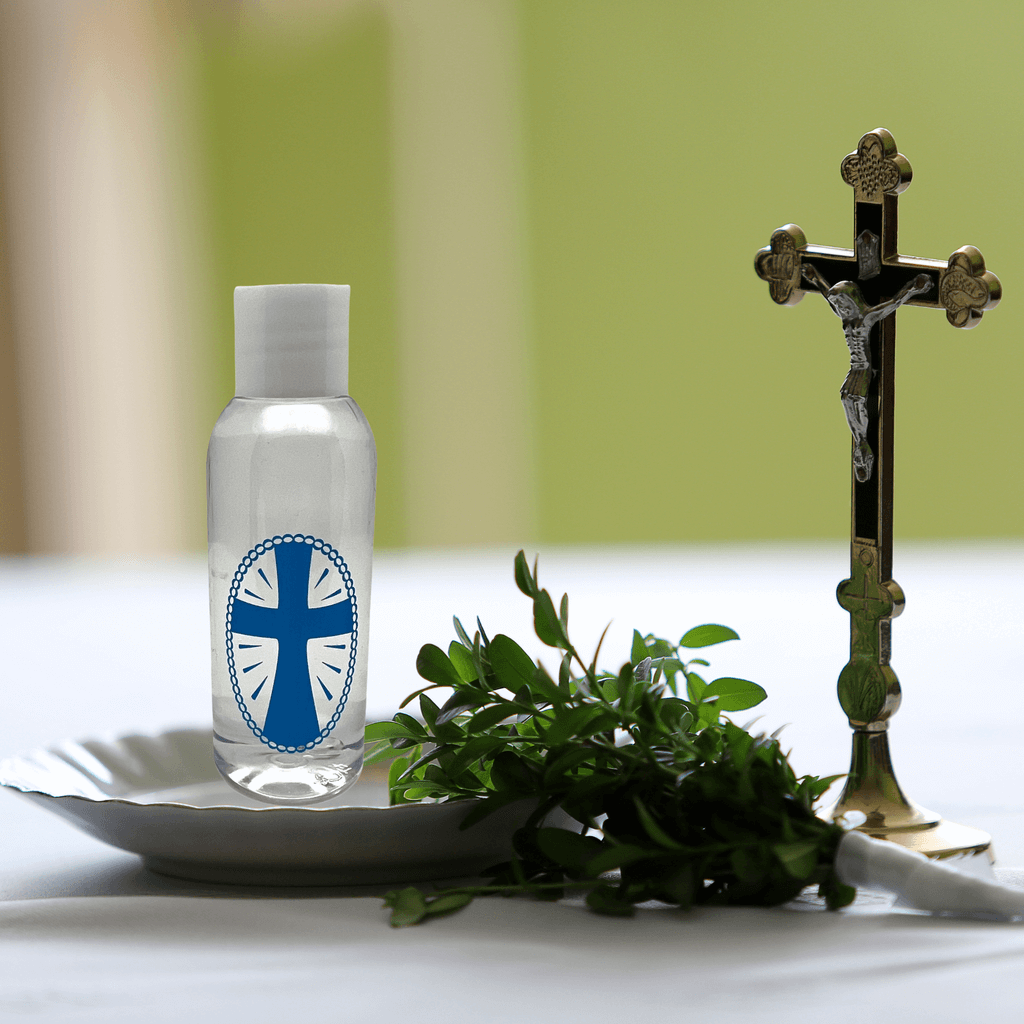
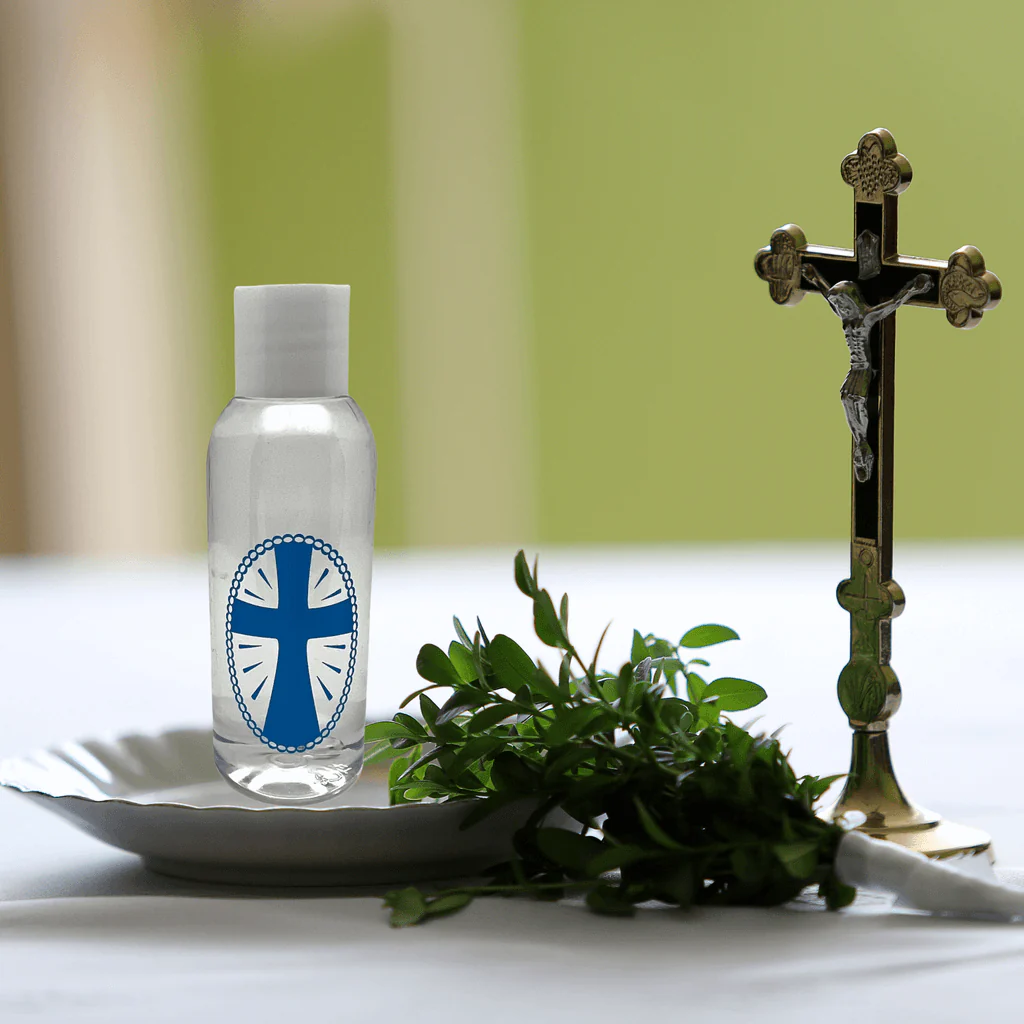



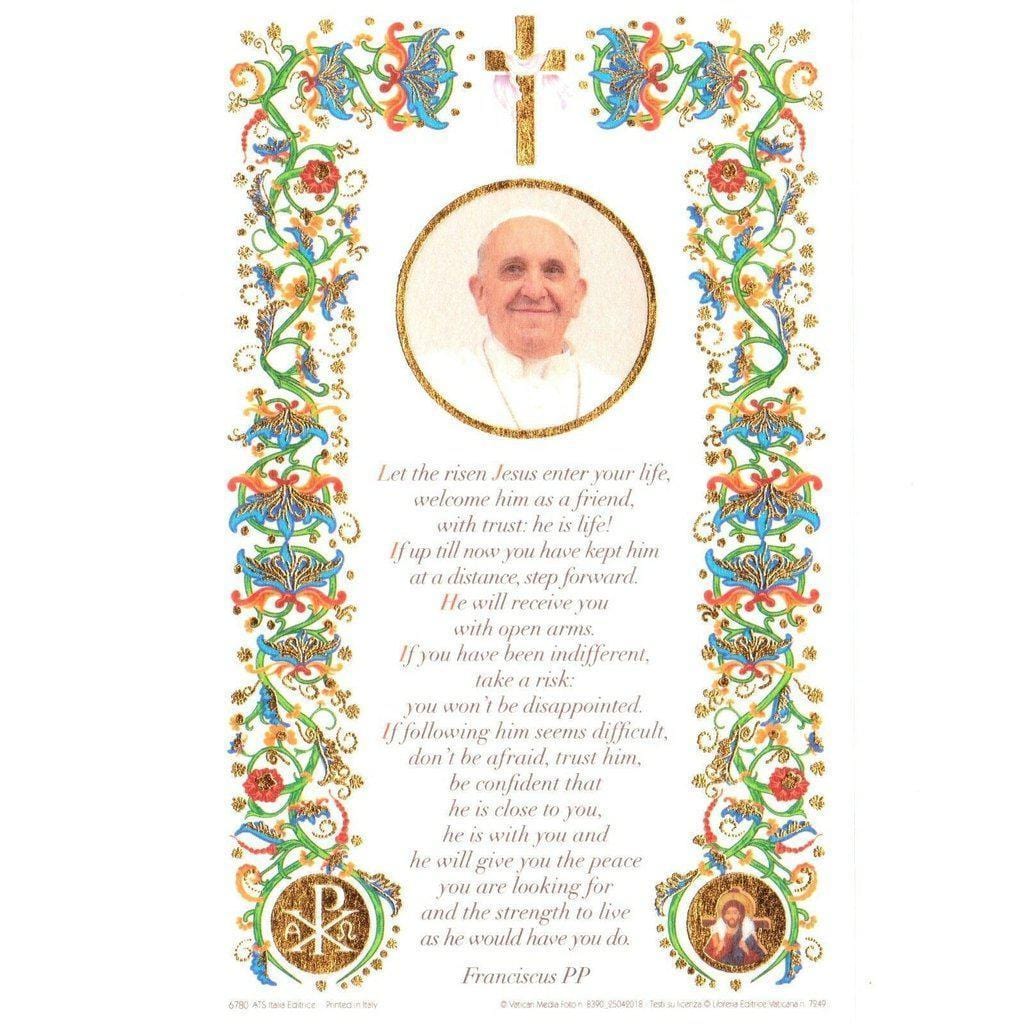
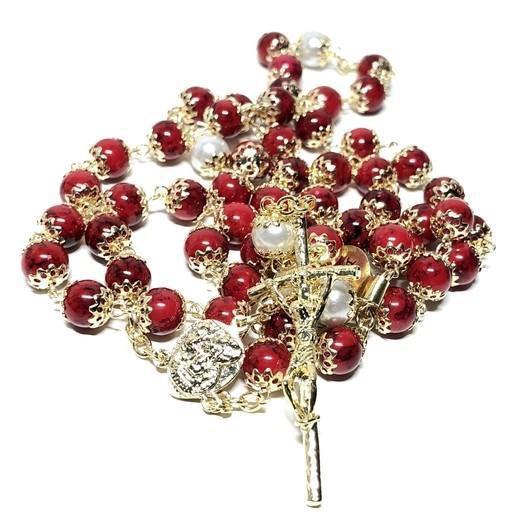
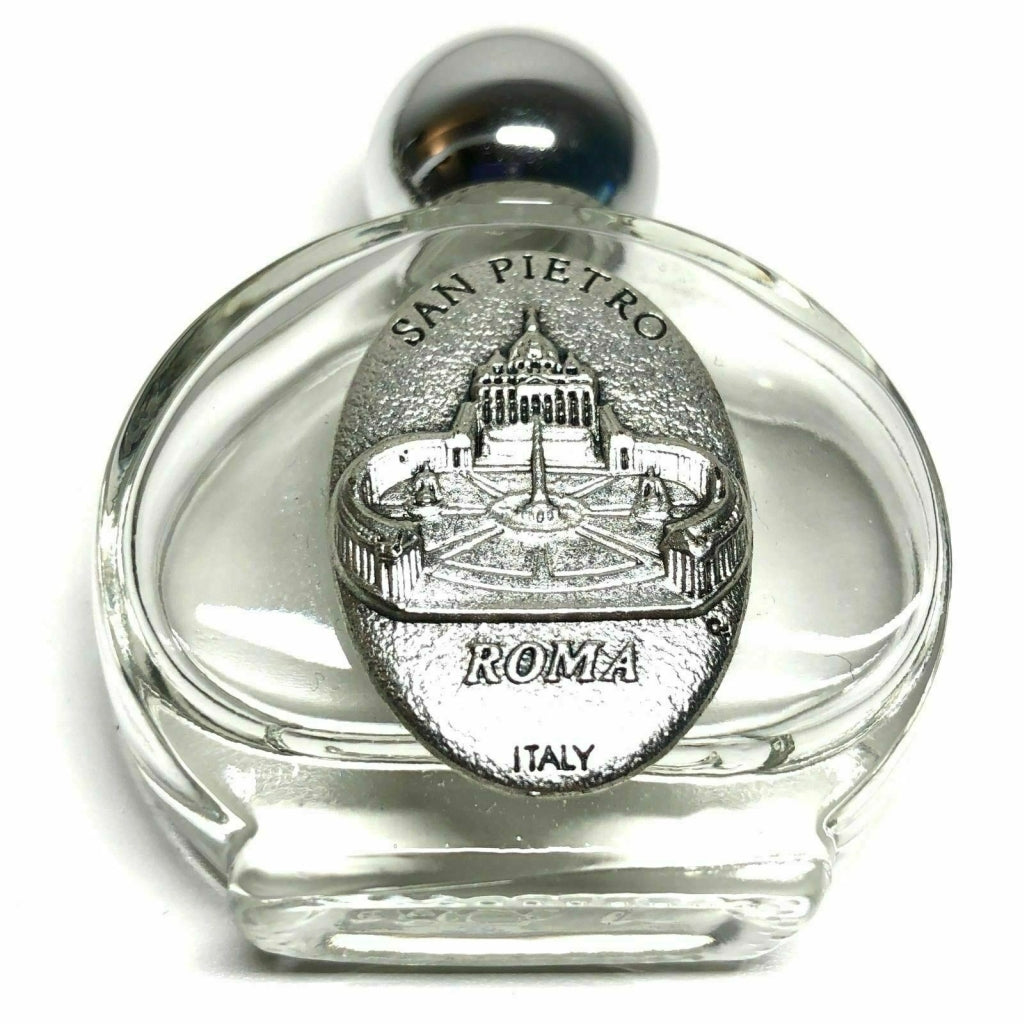

3 comments
Dear Sir or Madam,
Last week, I wrote to you about this sentence:
‘The Bible is the most read book all throughout the world. Its distinctness from other books is very notable since this is where the Christians base their religion and practices from.’
https://catholically.com/blogs/news/roman-catholicism-beliefs-and-practices
I pointed out to you that this sentence is false. The Catholic catechism states that Catholicism is based on 4 things, the Creed, the 10 commandments, the Sacraments and the Our Father. I also quoted the church Fathers in support of the reality that the bible is actually unnecessary to Catholicism. The Catholic faith does not need the bible, in fact it is the bible that relies on the church for it’s existence and authenticity. The original email included the pertinent quotes and authorities.
I write now to ask whether you will amend the page of its falsehood or maintaijn it but at least post my comment. If you will not do either of those things then I ask you for the courtesy of an educated explanation.
Kind regards,
David
Hi,
The bible is not essential to Catholicism. It is only essential to people who don’t want to be Catholic but do want to call themselves Christian.
Christ commanded “Teaching them to observe all things whatsoever I have commanded you:…” [Matthew 28:20]
So that’s what the Apostles did, unless we accept that they disobeyed Christ. The traditions established in the church by the Apostles include all that they wrote in the bible plus more of the commands of Christ. So that Paul tells us “…stand fast, and hold the traditions which ye have been taught, whether by word, or our epistle.” [2 Thess 2:15] He knows he hasn’t written down all the important things of Christ.
So Catholicism is based solely on Christ understood through the traditions taught by the Apostles; being the Church. They communicated His teaching and commands through their teaching, their practices, their ‘ordinances’ and ‘reminders’. [eg 1 Corinthians 11:2] Those are their confirmations of what Christ’s Truth is. St. Irenaeus [c130 – 202] says “it is not right to seek from others that truth which it is easy to get from the Church, since the Apostles poured into it in fullest measure, as into a rich treasury, all that belongs to the truth, so that whosoever desires may drink thence the draught of life”. Paul calls the Church, not the scriptures, “the pillar and ground of the truth” [I Tim.3:15]
St. Augustine’s [354-420] goes so far as to say “I would not believe the Gospels unless the authority of the Catholic Church moved me thereto”
So it seems fair to say that the Church is the highway and the scriptures are signs meant to give reassurance and help along the way, not to be the way itself.
As an aside it’s a bit disappointing to read Christians not using the BC/AD dating system. Surely the only reason to strip Christ of that hitherto world-wide acknowledgement is that it might offend the devil; which isn’t a positive reason. Just saying…
I congratulate you and thank you for your article and the work behind it.
Warm wishes,
Bill
I just love the church